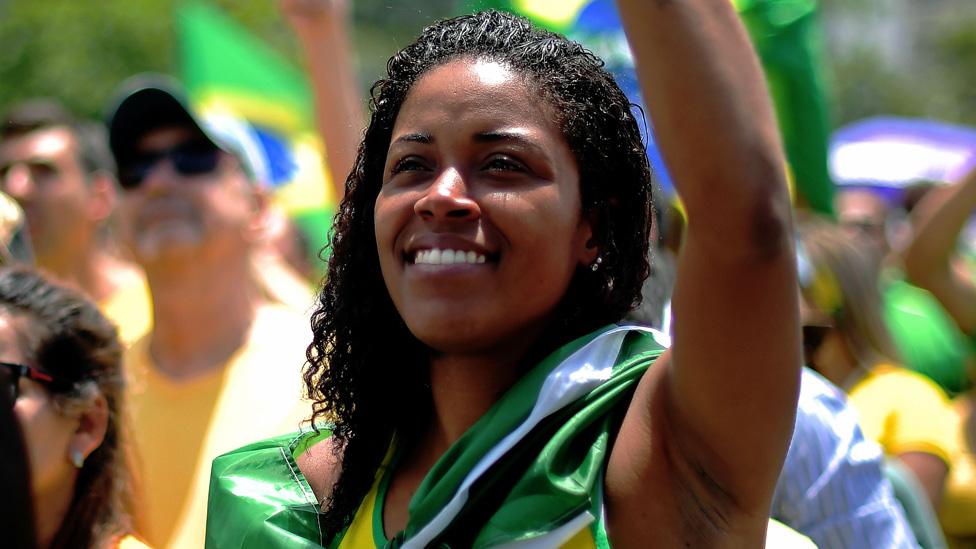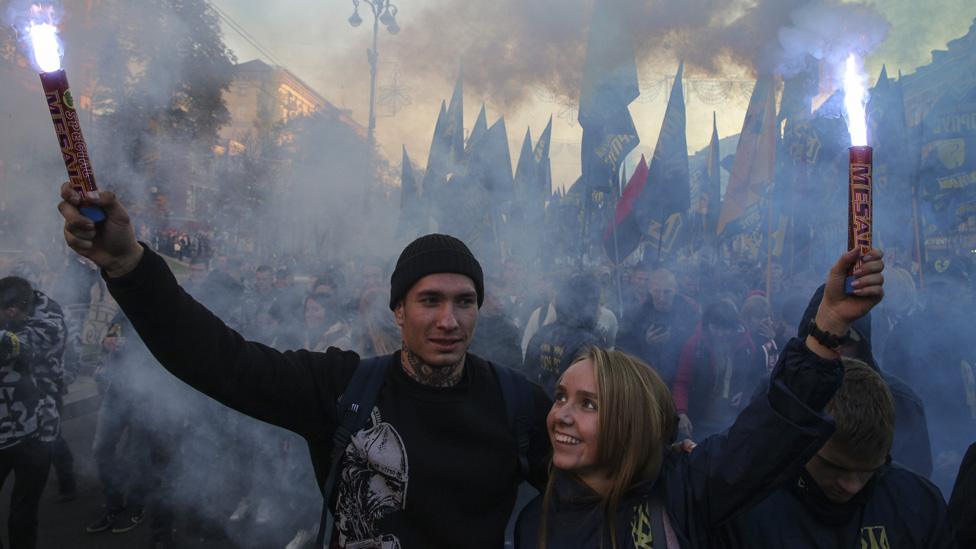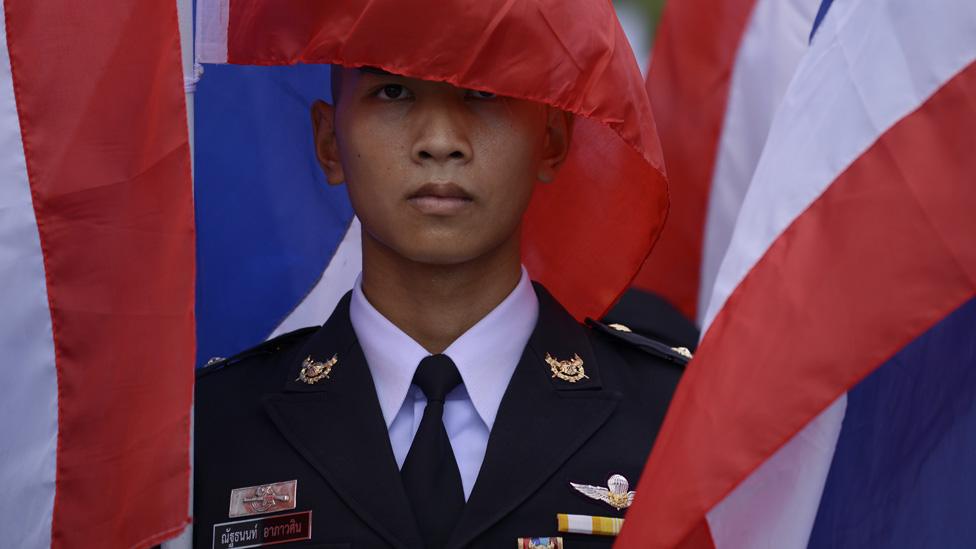The ordinary people making the world more right-wing
- Published

Around the world, conservative groups have been gaining influence, bolstering the power of right-wing leaders. It is a trend driven not only by older generations but also by the young.
The rapid rise of Brazil's new far-right leader Jair Bolsonaro may have surprised some observers but it did not come out of thin air. His success follows years of support from powerful social movements.
Such groups have increasingly found a voice in countries from Poland to Thailand to India - their influence coming from ordinary people rather than politicians.
Their rise is a crucial part of the turn towards more conservative politics in many countries around the world over the past few years.
Often, right-wing populism is seen as being brought about by new political parties or charismatic leaders. Think of Hungarian Prime Minister Viktor Orban - who presents himself as the defender of his country and Europe against Muslim migrants.

Nationalist rallies have been held in the centre of Ukraine's capital, Kiev
But the reality is that the role of grassroots movements is often central.
This has been brought about by what is often described as "civil society" - citizens' groups or organisations with a particular aim, whether that's saving a school from closure or overthrowing a regime.
For years, civil society has tended to be seen as liberal: supportive of human rights, democratic reform and the protection of minorities. Often, it is still these "progressive" causes that appeal to younger activists.
But today, civil society involves an increasingly diverse mix of people and political goals, with those on the right gaining traction.

Thailand's military rulers have benefited from the support of citizens' groups
Many of these conservative groups share a belief in "traditional" values - those often associated with:
religious beliefs
community
national identity
protection against immigration
support for the family unit
Of course, there is also much that divides conservative civil society. While most groups favour democracy and work within mainstream politics, a small number are more disruptive and sometimes even violent - as is the case among groups on the left.
Whatever the differences, research by Carnegie Europe shows that there are many countries where conservative civil society has had a key role in shaping domestic events, external:
In Brazil, a broad coalition of conservative groups helped push President Dilma Rouseff out of power in 2016, amid protests about widespread corruption
Ukraine has seen radical national activists, external protest against Russian interference, while socially conservative groups focused on religious and family values have also grown
In Thailand, conservative social movements, external seen as anti-democratic have helped to underpin military rule
In India, Hindu nationalists have gained influence as supporters of Prime Minister Narendra Modi's policies, including moves to strip four million people of citizenship
Islamist civil society in Turkey has thrived in tandem with the rule of the Justice and Development party
In Poland, a powerful conservative civil society now works closely with the Law and Justice government, which brought in a range of measures tightening control over the judiciary
There are many other places where conservative groups have grown in influence - from those in Georgia opposed to closer links with the EU, to Ugandan groups against greater gender equality.
In the US, anti-abortionists and right-wing groups including Patriot Prayer - which has been linked to the alt-right but argues that it campaigns for freedom and unity - have staged numerous high-profile demonstrations since Republican President Donald Trump took power.
In Europe, the French youth movement Génération Identitaire has been described as the equivalent of the American alt-right, while Pegida (Patriotic Europeans against the Islamisation of the West) alarmed the German government during its rapid rise.

Kim Kataguiri (centre) has now been elected to Brazil's Congress
The differences between the groups are important - demonstrating that they can't all be treated as one.
Neither can they be regarded as simply a voice for older conservatives or those who feel excluded by social trends.
These movements are attracting many younger activists in many countries.
One of the groups behind Jair Bolsonaro's campaign, the Free Brazil Movement, has three million followers on Facebook and more than one million subscribers on YouTube.
One of its best-known faces, 22-year-old Kim Kataguiri, recently became the youngest ever member of Brazil's Congress, external.
In Thailand, a group of students known as Cyber Scouts has been accused of monitoring other citizens' social media comments, in their role backing the military regime and its campaign for traditional and royalist values.
Similar alliances between young people active on social media and conservative groups have been seen in countries including Morocco and Tunisia.
Such developments have seen right-wing civil society move into a space that was, until recently, dominated by liberal and progressive causes.
It is likely to mean a fierce rivalry between groups on the left and right as they battle to be heard not only by politicians but by society as a whole.

About this piece
This analysis piece was commissioned by the BBC from an expert working for an outside organisation.
It is based on The Mobilization of Conservative Civil Society, external, by Richard Youngs, external - a senior fellow in the Democracy, Conflict, and Governance Program at Carnegie Europe, external, which focuses on EU foreign policy and on issues of international democracy. Follow him @YoungsRichard, external.

Edited by Duncan Walker